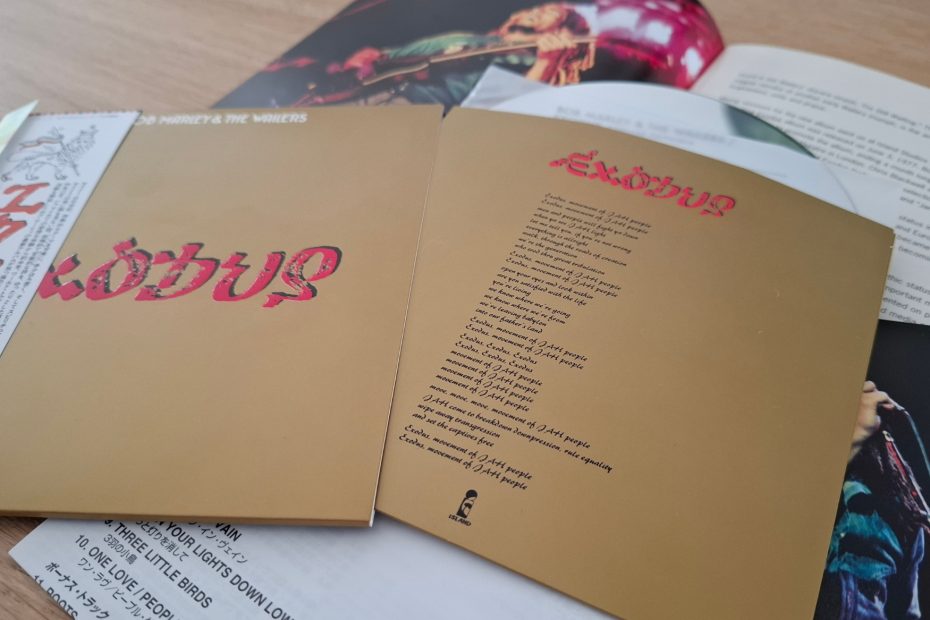The everlasting debate of sound quality between different media formats, audio equipment and setup has always intrigued me. The emergence of better streaming services and devices the last ten years or so has only reignited the discussion with streaming as a serious contender. I wouldn’t call myself an audiophile and wouldn’t go as far as others are willing to venture according to the countless threads I have read online. It sometimes astonishes me how dedicated some are and more often than not find myself lost in translation when things become an all-out discussion about the science behind sound reproduction. However my limitations towards the physics of sound reproduction, I too make use of the research done by others, admire their dedication and hope to learn a thing or two in the process. My interest is mainly fixated on finding the sweet spot where quality meets investment like my most recent purchase of the IsoAcoustics Gaia III isolation feet. They really take my speakers to a whole new level in all circumstances and is worth every euro. Another topic I came across some time ago was the SHM-CD format which to that day I had no clue actually existed. The SHM-CD format differs from the normal manufacturing process for CD’s by using super high material which is also used for high-end plasma screens instead of the standard CD polycarbonate. Reading this, I wondered how they would stack up against a regular CD release. Over time I just couldn’t suppress my curiosity anymore and cut the cord on two albums that were released in the SHM-CD format. Apart from the price tag, another drawback is that most or even all SHM-CD releases are originally intended for the Japanese domestic market. The SHM-CD format never established a real foothold outside Japan apart from a group of enthusiastic collectors I’m now part of.
One of the albums I managed to purchase for a reasonable price is the stellar Exodus 75th anniversary edition by Bob Marley & The Wailers. Not to be mistaken with the 75th anniversary of the Exodus album (you’ll need to wait another 28 years) but rather the marking of Bob Marley’s own 75th birthday back in 2020. In conjunction with buying the Exodus album, I did some browsing and came across a list of tracks to test your speakers performance. “Turn Your Lights Down Low” was specifically included to test how your speakers handle space. I already owned a rare pressing of Exodus, the album that contains the single “Turn Your Lights Down Low”, on Tuff Gong manufactured in Barbados but I’m a bit (understated) disappointed about the sound quality. It sounds very muffled, so I decided to give the SHM-CD format a chance to prove it’s worth.
Even I know in sound reproduction it all comes down the master and using the same setup testing two different variants. I have The Complete Island Recordings CD box which to my knowledge uses the same master taken from the original two track analog master tapes and remastered by Sterling Sound US in 2001. As far as I can tell, most releases of Exodus after 2001 use that same master. In that sense both versions of Exodus (SHM-CD and regular CD) come as close as I possibly can get to do a proper test with the means at hand. I listened to each individual track on the regular CD and in-between each track switched to the SHM-CD and tried to be as objective as possible. Quite a hassle as I own just one CD player. I would love to have someone around to switch the CD’s for me so I wouldn’t know what CD I was listening to in order to rule out any novelty bias, but didn’t dare ask my wife.
Apart from both CD’s sounding nothing short of amazing, I found-out that the SHM-CD format is superior to the regular CD that is part of The Complete Island Recordings CD box not to mention my original Barbados LP on Tuff Gong. It takes a closer listen and probably a while to fully notice the subtle differences but when it catches you it is very clear over the full range of the music presented. A few tracks demonstrated the difference quite clearly.
“Natural Mystic” – this track has such a memorable intro among Bob Marley’s work in which the drums, just listen to the hi-hats of Carlton Barrett, sound more distinctive ending in his well-known drum roll. The same goes for the rhythm guitar and Aston Barrett’s pulsating bassline. The backing vocals also sound more convincing and better placed.
“Exodus” – The rhythm guitar intro and kick drum of Carlton Barrett gives this one away rather easily. The bass goes deeper without losing definition, the keyboards (most noticeable the clavinet) more poignant, and the horns more defined. Better placement of the instruments overall for instance the hand drumming is much more distinctive next to the vocals.
“Turn Your Lights Down Low” – The slow skank that got me started sounds more refined in all its glory. The I-Threes gospelesque support of Bob Marley contemplative message clearer than ever. The guitar riff sits more evenly in the mix, now easy to pick up on even on a casual listening session.
All in all a more cohesive and immersive listening experience compared to the regular CD I would say. So yes, I believe it is worth investing some more money for a SHM-CD if an album is extra special to you, but the difference in sound quality will differ from release to release. In essence it always come down to a proper master. A SHM-CD can sound crappy if the master used is done badly and you are better off just buying the best sounding regular CD release. Also personal preference always play a big part, why some would prefer the regular release over the SHM-CD release. If you want to be absolutely one hundred percent sure the SHM-CD is worth the surplus in price, the only way is to buy both and give a listen yourself.
Apart from the sound quality, the artwork for the 75th anniversary edition of Exodus is honestly immaculate. Lavishly executed with the original textured artwork shrunk down to CD size with inner sleeves, protective sleeves, 27 pages booklet with beautiful pictures, additional tracks and an extra CD with the live tour of Exodus recorded at the Rainbow Theatre in 1977 and the London recording session with Lee Perry. As a fan of music in general, I feel the Japanese really understand how to make something you hold dearly feel extra special and this is definitely true for the 75th anniversary edition of Exodus. Seeing that for instance the Original Master Recording by MFSL on Vinyl will set you back approximately 200 euros, the SHM-CD release is definitely something to consider!


If you go to Japan on holiday, you will be able to minimize the price difference between regular and SHM-cds 😉
I’d love to go for a third time but I’m afraid it will once again end in a buying frenzy completely depleting my reserves😱 How is your listening experience with the SHM format?
I did not really notice it, but probably have not listened close enough. Like you said it is probably more the mastering and I would have thought about that a cd would have good mastering, but it might have been the SHM-cd. I will have a closer listen when I play a Japanese cd next time.